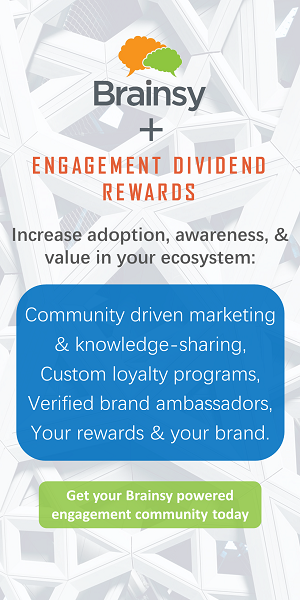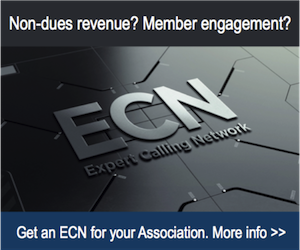Tags
Entrepreneur Technologist Inventor Business Advisor Coach of Top Talent Trainer Author Start-up Founder High Impact Growth Consultant
Latest Knowledge Board posts



Biography
Ray Garcia is the managing director of Buoyant Capital, a global peer advisory think tank addressing the growth challenges of small to medium sized enterprises. The firm coordinates its team of experts to help its clients improve competitiveness through talent management, global market expansion partnership access, technology asset management, capital investment and restructuring. Buoyant Capital was founded in 2000 in New York City and has helped launch several start-up companies and works as an advisory to company founders, CEO's, and their investors. Ray has over 20 years of experience as a technology entrepreneur, as company CTO co-founder, for four venture-backed companies. Earlier in his career, he worked as an executive for major banks including, Citicorp, Republic National Bank (now HSBC), Bank of America, and as a technology consultant to several large US multi-national corporations. In 2008, he was elected to serve as an executive in resident at MIT Media Lab. Since 2010 he serves on the advisory board of Baruch College Field Center for Entrepreneurship. From 2011 to 2014, he taught an accelerated course in entrepreneurship at the University of Pisa, Italy, School of Economics, to PhD candidates and International MBA executives with a focus on innovation, technology transfer and venture spin-offs. In 2015 he is serving as a business expert to EU Commission Horizon 2020 SME innovation instrument where he will evaluate commercialization grant proposals of technology ventures.
Experience
Venture Growth Advisor
Buoyant Capital
January 2000 - present
Entrepreneurship Lecturer and Curriculum Coordinator
University of Pisa
April 2011 - May 2014
Executive in Residence
MIT Media Lab
August 2008 - September 2009
Research Advisor
University of Arizona
October 2005 - March 2009
CTO, VP R&D
SMART System Technologies
May 2002 - September 2005
CTO
Clearcross Inc. (now Kewill Intl.)
January 1997 - January 2000
VP Technology
Citicorp
January 1996 - January 1997
VP Technology
Republic National Bank (now HSBC)
January 1994 - January 1996
Director of R&D
Syntra Technologies Inc (became Clearcross Inc)
January 1992 - January 1994
Technology Consultant
Sybase Inc.
January 1991 - January 1992
Director of Information Systems
Restaurant Associates (now a division of Compass Group)
January 1986 - January 1991
Instructor
Baruch College
June 1988 - September 1989
Education
City University of New York, City College
Bachelors
1981 - 1985
Other
Languages
English
Patents
Contact Card for automatic dispensing
November 2007
Authentication Methods for use in Financial Transactions and Information Banking
January 2007
The hype around Generative AI is that it may have the potential to revolutionize many industries in the next five years, especially those related to automation. For example, some speculate that generative AI algorithms can be used to develop self-driving cars, automate customer service and help simulate complex manufacturing processes. Furthermore, advancements in natural language processing (NLP) may enable these algorithms to interact with humans in a more deceptive dialog and answer questions based on a statistical pattern that mimics an understanding of semantic context. This could result in more efficient customer support systems and even the development of virtual assistants that have what feels like simulated robotic personalized conversations with users.
Several ways to address the problem you stated:
- avoid those clients once it is known that they avoid paying for services even when they agreed to receive the benefits.
- test the client early, with a small amount, tiny engagement to assess the risk
- have a solid contract that has a penalty for non-payment, with interest, and pursue reporting the company to the credit agencies when they do not pay.
- Get paid some portion up-front, then make sure that the deliverable is recoverable so that they do not get the full benefits until the
final payment is received.
- reduce the terms of the payment to immediate on delivery if prepayment is not possible
- get a good lawyer with a named firm, when these big companies see a contact from a known law firm they behave differently
- convert some portion of the consulting online where they have to pay with a credit card for the time if the consulting is verbal. Consultants can use http://brainsy.com/ it is exactly for expert consulting and it solves most of the problems related to non-paying clients, the clients have to pay for the time of a call.
- stay away from the procurement offices, they are the worst at doing this
- stay away from the client legal departments, they are the second worst
- make sure that whomever the consultant is dealing with has a budget and the signing authority to release the payment.
- do not deal with any low-level people in the companies, they do a lot of this free gathering of advice, they get other people to do work for them but they have no authority to pay for it or have it approved.
- separate the free advice from the paid advice
- avoid certain cultural behaviors that have an insular view of exceptionalism where they treat anyone who is not like them as
enemies or people to exploit, thus they work with win-lose attitude. This is a hard one since it is not good to make these kinds of generalizations but in NYC this largely holds true for some interactions but this is something that each consultant will have to learn for themselves, I do not want to disparage any group with generalizations. Doing business internationally or with people from many other backgrounds has many nuances when it comes to negotiations and they can cause a lot of misunderstandings.
- test the relationship by assessing the negotiation style and whether it is win win and fair
- spend enough time with the person to have some assessment of the character and the culture of the organization.
- focus on repeat "good" customers over trying to find new customers
- do the kind of consulting that is time dependent where the value is not lasting and the clients have a recurring need.
- try to get out of the freelance consulting business, find a tangible product that can be sold via e-commerce instead so that it has some way of scaling.
- build a reputation that is so respected that a company would not want that person to never recommend dealing with them for bad behavior
- start a website where people can post anonymously their bad experiences with companies with regard to unfair payment practices.
I have done consulting work for many years and only once did I have a delayed payment situation where the CEO was a toxic client but eventually paid.
Do greater blocks of european vacation time create opportunities for european entrepreneurs to conduct R&D for themselves (for new ventures) while working with their existing employers?
The broader question is one of whether a social safety net, regulated labor conditions, can foster entrepreneurial activity when the circumstances leave time to work on goals that are beyond the primary employment. I have observed that this seems to be the case in some countries but it is more a function of adversity versus opportunity. Adversity is a strong motivator, often much more than opportunity.

